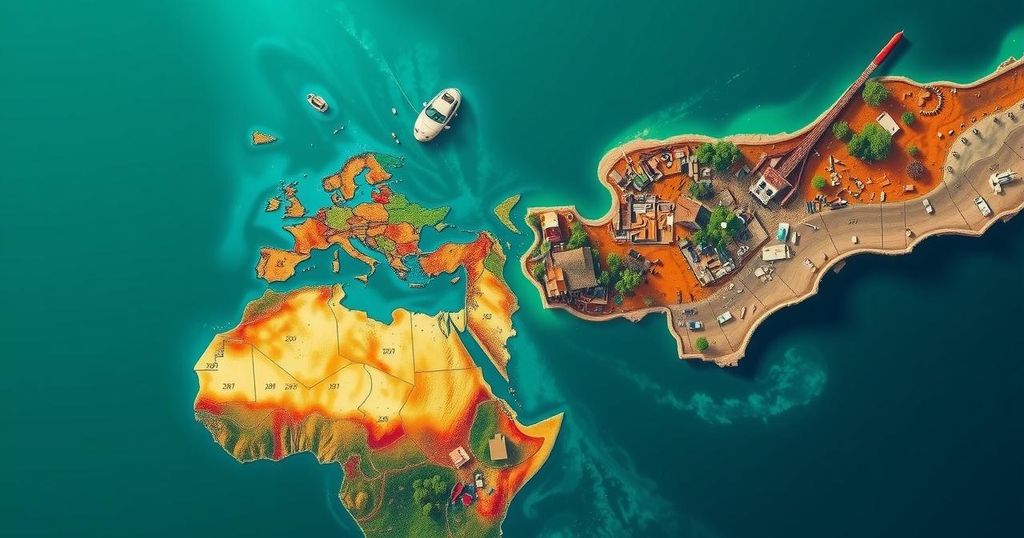Yemen faces escalating risks from climate change compounded by a decade of conflict, stressing the need for climate-responsive investments. The Yemen Country Climate and Development Report indicates that without urgent action, Yemen’s GDP could decline significantly due to climate impacts on agriculture and infrastructure. Potential investments in water management and renewable energy are identified as key strategies to build resilience and secure a sustainable future for the nation.
Yemen is grappling with overlapping crises, particularly the escalating repercussions of climate change exacerbated by decades of conflict. The latest Yemen Country Climate and Development Report (CCDR) from the World Bank Group underscores the urgent necessity for investments tailored to cater to climate challenges, focusing on critical sectors such as water security, agriculture, and disaster risk management. As the country experiences rising temperatures and erratic rainfall patterns, these climate risks threaten the livelihoods of nearly half the population, significantly affecting food security and economic stability.
The CCDR highlights that without immediate intervention, Yemen’s annual GDP may see an average decline of 3.9% by 2040 due to the detrimental impacts on agricultural output and infrastructure degradation, escalating existing vulnerabilities. However, it also outlines potential strategies to fortify resilience against these threats. For instance, investments in water management and adaptive agricultural practices could enhance crop productivity by 13.5% between 2041 and 2050 under favorable conditions.
The report emphasizes the critical role of disaster risk management, especially in light of increasingly frequent flash floods that place urban areas at risk. The economic strain from climate-related health issues could reach over $5 billion by 2050, necessitating the incorporation of climate resilience within public health strategies aimed at protective measures for vulnerable demographics.
The World Bank’s call for investment in renewable energy is pivotal for addressing Yemen’s needs in a sustainable manner. It could not only diminish the reliance on fossil fuels but also establish a robust power infrastructure vital for healthcare, water supply, and food distribution in conflict-prone regions. Private sector involvement is deemed essential for these efforts, with innovative financing and a favorable investment environment seen as keys to unlocking necessary funding.
In acknowledgment of the nation’s precarious political environment, the CCDR advocates for adaptable, risk-informed decision-making processes. A scenario-based approach enables tailored climate actions that align with Yemen’s evolving political landscape, proposing enhanced adaptation measures that could yield significant socio-economic advantages under a potential ‘Peace and Prosperity’ framework.
Yemen has faced prolonged conflict which has compounded the effects of climate change, leading to significant threats such as water scarcity and food insecurity. The interplay of these crises creates an urgent need for comprehensive strategies to enhance climate resilience and development within the nation. The World Bank Group’s CCDR serves as a vital diagnostic tool that provides an analysis of how climate change exacerbates existing vulnerabilities and presents pathways for sustainable recovery in Yemen. Understanding the nuances of this report necessitates acknowledging Yemen’s socio-political difficulties and the critical need for international cooperation and investment to foster a more resilient future.
The World Bank Group’s report delineates an imperative for Yemen to address the intertwined crises of climate change and ongoing conflict through careful investment in resilience-building measures. By harnessing resources for climate-responsive practices and engaging the private sector, Yemen can create a more secure and sustainable environment for its population. However, achieving these goals hinges on a commitment to peace and long-term development strategies that prioritize both climate adaptation and socio-economic stability.
Original Source: www.worldbank.org






